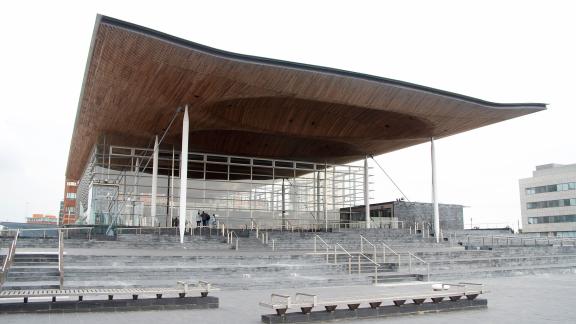Partnership working key to improving population health
With pressures on the health and care system exacerbated by the Covid-19 pandemic, now is the time for the NHS to continue to work with a range of partners to support the population’s health and wellbeing.
There's been a real sense of closer partnership working to work towards collective goals this month, namely improving population health. Not least, this shone through in our two joint events with HARP (Health Arts Research People) and Community Leisure UK (Wales).
In our event with HARP, health leaders, politicians and practitioners came together to share their experiences and look at how the arts contribute to ‘A Healthier Wales’, the long-term plan for health and social care, as well as how policy makers can enable Wales to lead the way in this space. During the event we heard about four inspiring projects, which highlighted the real-life benefits to people across Wales. This included those who are lonely or isolated, older people recovering from Covid-19 and supporting people’s mental health.
As evidenced in Audit Wales’ report on planned care recovery, the NHS faces astronomical levels of demand and a huge backlog in planned care, and we must therefore look at the bigger picture when attempting to address these challenges. Part of this is making sure policy makers support arts and health partnerships to drive real change in our communities, especially through social prescribing.
We should be proud of what is happening in Wales - we are seen by many as leading the way across the UK. Conversations around partnership working have completely changed. Arts and health have gone up the agenda and we have the legislative frameworks in place, through the Wellbeing of Future Generations Act, to be able to make real progress in these areas.
There’s some fantastic work going on at a health board and trust level - the fact that each health board has an arts and health coordinator has driven this work forward and we look forward to publishing an evaluation of these posts in the coming months.
One of the challenges we still face is around performance measures and targets against which the NHS is scrutinised. The Welsh NHS Confederation has been calling for outcome-based measures and targets that focus more on outcomes for people, the difference it has made to people, rather than more crude, time-based measurements.
This month we also held a joint event with Community Leisure UK (Wales) to reflect on how leisure and culture trusts can support the NHS, but also population health and wellbeing. At the event, we launched our joint report showcasing how charitable trusts in Wales can play a pivotal role in reducing pressure on the NHS through rehabilitation, ‘prehabilitation’ and preventative services. The report calls on health professionals and leisure and culture trusts in Wales to connect and collaborate more going forward.
During the pandemic, leisure and community trusts played a crucial role in local health delivery, from transforming leisure facilities into temporary field hospitals, to supporting mass testing and the vaccination programme. In addition, community and leisure trusts support population health by helping prevent ill health, addressing health inequalities and encouraging healthier lifestyles.
So, what have we learnt from these events? That without effective collaboration and local, cross-sector relationships, the NHS will struggle to make strides in improving population health and reducing demand in the long term. We look forward to continuing to work in partnership with a range or organisations and sectors across Wales to raise awareness of the significant support they play in supporting the population’s health and wellbeing and our NHS services.



